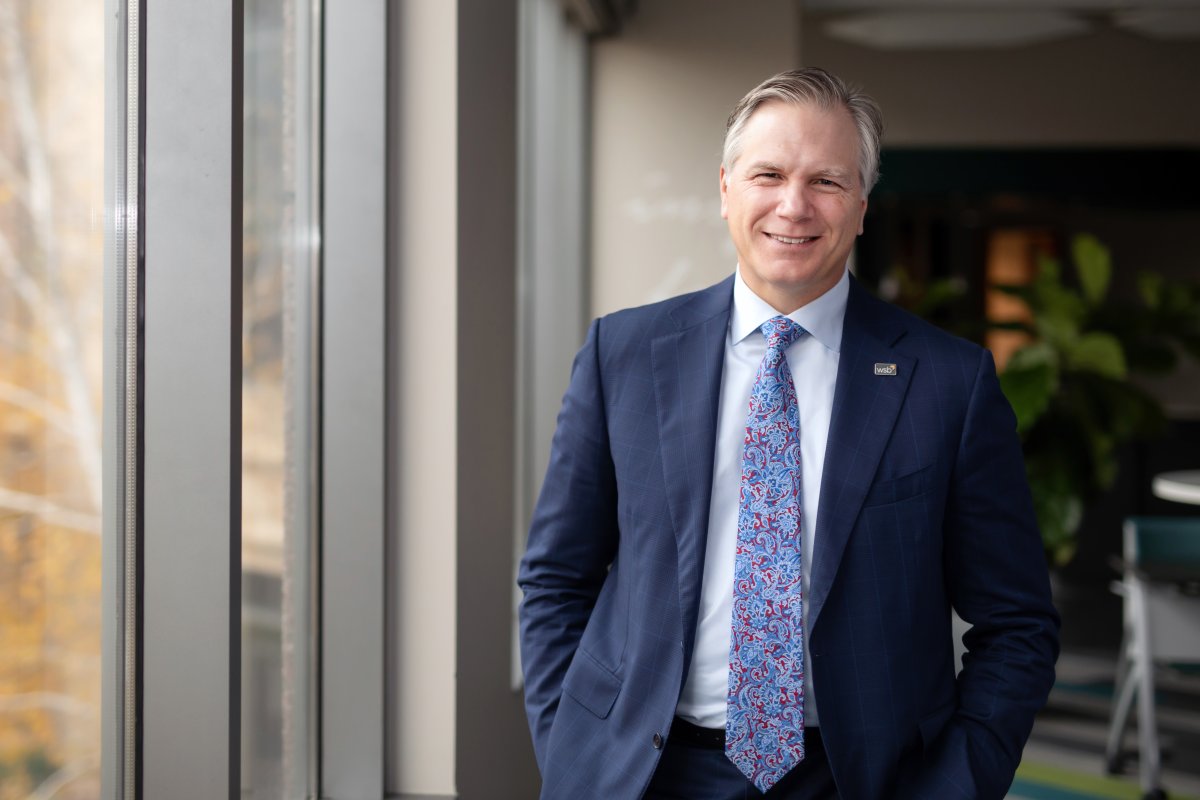Invest in people, innovate in everything

Above: WSB co-founder and civil engineering alumnus Bret Weiss started the training program to bring more women and people of color into his company and his field.
Photos courtesy of WSB.
Alumnus builds program to increase diversity in civil engineering
December 21, 2020
When Bret Weiss (Civil Engineering ’87) co-founded WSB in 1995, the young company had to compete against other design and consulting firms that had more resources and had been around for decades.
“We really focused on our staff and leaned into innovation,” said Weiss, who became CEO in 2000. “We’re still doing that to this day. That’s our secret sauce.”
Today, the Minneapolis-based company has 525 employees and offices in Minnesota, Arkansas, Colorado, North Dakota, and Texas. Their approach to investing in people and thinking outside the box has helped the company meet the challenges of 2020. This spring, in the midst of the coronavirus pandemic, WSB graduated its first class of nine students in a new program called Opportunity+ designed to bring more women and people of color into his company, and ultimately, into the field of civil engineering.
“Our industry is not very diverse,” said Weiss, who served on CSE’s Department of Civil, Environmental, and Geo- Engineering Advisory Board. “It’s white, male dominated.”
In part, it’s a pipeline problem. In 2019, for example, only four percent of undergraduate engineering degrees in the United States were awarded to African Americans, a portion that hasn’t changed much over the last decade, according to the American Society for Engineering Education.
About 23 percent of degrees were given to women. Weiss felt he and his colleagues needed to do more.
“There was a sense of ‘we’re not getting blamed for this, so why does this matter? What could we do?’” he said.
“I felt like our industry was hiding behind the fact that the universities were not producing as many graduates who are minorities or women,” he added. “I don’t mean that as a slam against universities. But I think we’ve used them as the scapegoat.”
Weiss realized that if WSB wanted to hire underrepresented groups, it couldn’t rely on referrals from existing employees, nor count on technical school programs, which can be prohibitively expensive. They needed to recruit and introduce people to the field.
After two years of planning, WSB launched a four-month evening class. It was offered free of charge, with 200 hours of training in surveying and materials testing, and a stepping stone to high-demand jobs that pay $17 to $20 per hour with full benefits and opportunity to move up. Seven of the nine graduates are people of color and four are women.
Although COVID-19 slowed progress, WSB hired two of the graduates and is working to place the two others who showed interest, Weiss said.
In some ways, bringing diversity to the company is simply about building a winning team, and Weiss knows all about that. As an undergraduate at the University of Minnesota, he played a year under legendary football coach Lou Holtz.
“I would say in a lot of ways Lou Holtz really shaped who I am and how I think,” Weiss said. “He was an amazing leader.”
In particular Holtz hammered home teamwork and humility. Weiss recalled him saying that the best running back in the nation can only do his job if he has people up front blocking and laying the path.
“So while there is individual talent, there is also collective talent,” Weiss said. “That just really resonated with me.”
“Companies that are more diverse are more successful,” he said.
“Our work supports different communities, and if we have a diverse staff,” Weiss added, “it’s going to make us more successful as we think about how we deliver and design projects.”
Weiss realizes two hires doesn’t sound like much.
“But that’s a start,” he said. “We hope that next year when we graduate another nine that we place all nine of them, and that 10 years down the road we have hundreds of people who are Opportunity+ graduates who are working in our industry.”
Read more stories from our Winter 2021 college magazine.
By Maja Beckstrom
